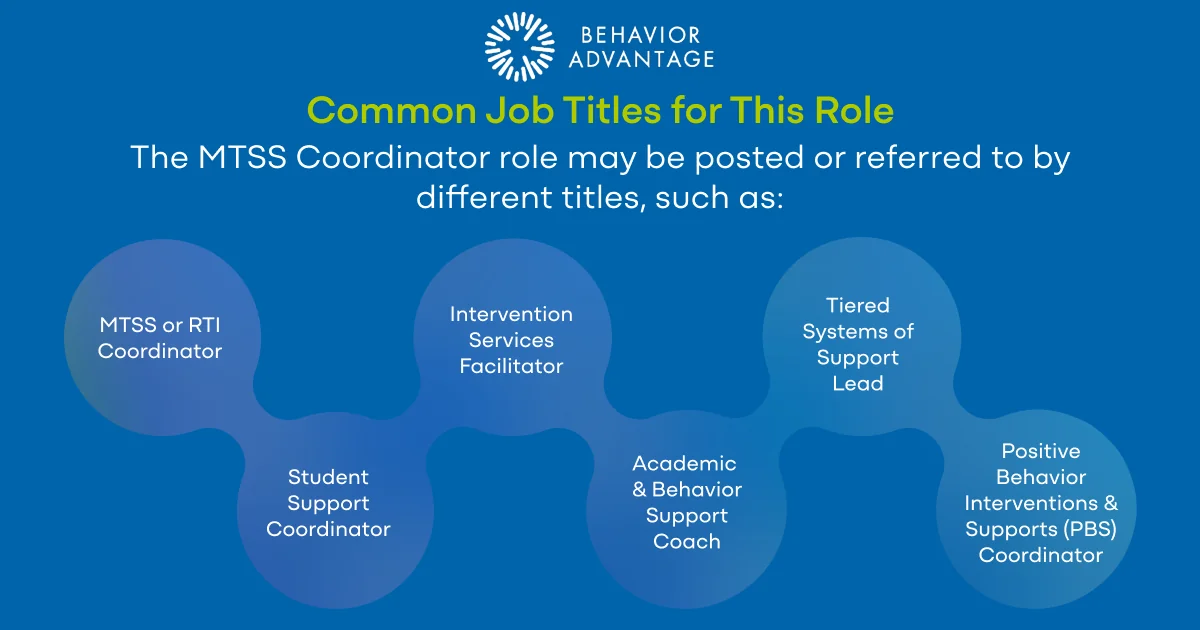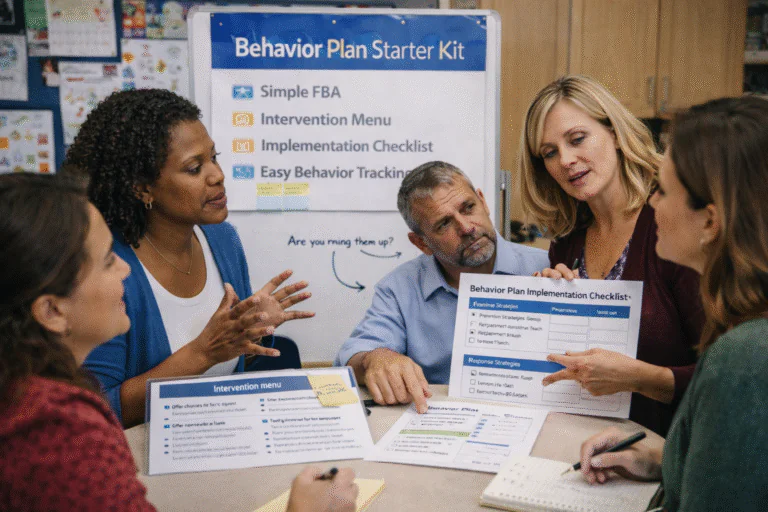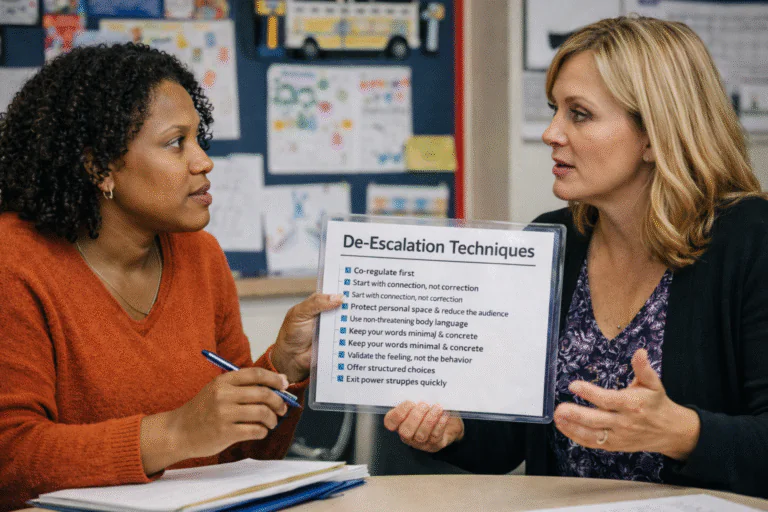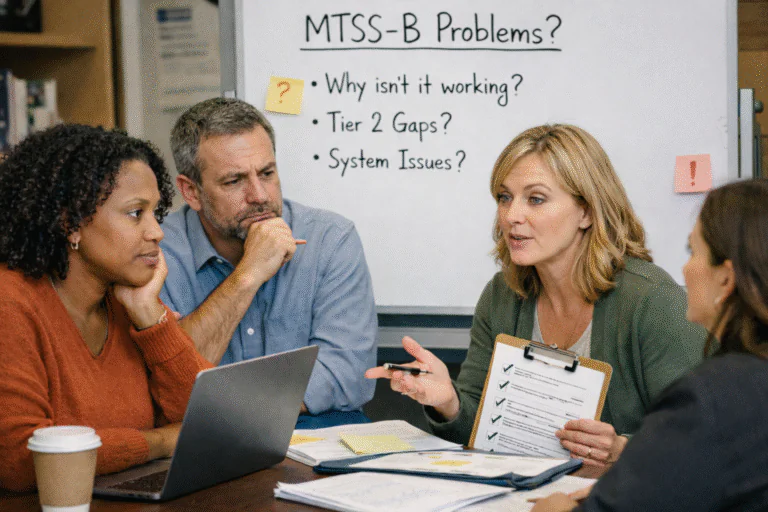In today’s schools, the demand for clear, proactive systems that support the whole student has never been greater. A Multi-Tiered System of Supports (MTSS) provides the framework to meet academic, behavioral, social-emotional, and attendance needs in an integrated and equitable way. At the center of strong MTSS implementation is the MTSS Coordinator—a role that’s growing in both visibility and impact across K–12 systems.
Whether you’re an administrator, specialist, or educator stepping into this role, understanding the MTSS Coordinator’s responsibilities, tools, and best practices is essential. In this article, we’ll walk through what the role entails, how it varies by context, and what makes it successful.
What Is an MTSS Coordinator?
An MTSS Coordinator is the point person for organizing, aligning, and sustaining the systems and supports within a school’s or district’s MTSS framework. Their role ensures that student needs are proactively identified, supported with evidence-based interventions, and monitored consistently.
It’s important to note: the MTSS Coordinator role looks different depending on where you serve.
- At the school level, a coordinator may focus on facilitating MTSS meetings, supporting teacher teams, and ensuring interventions are implemented with fidelity.
- At the district level, coordinators often support implementation across multiple campuses—developing infrastructure, offering training, analyzing district-wide data, and aligning practices across schools.
Additionally, the size of your school or district and the level of MTSS adoption and staff training will significantly influence how the role functions. In newer implementations, coordinators may spend more time building foundational systems and providing coaching, while in more advanced systems, the focus may shift to progress monitoring and continuous improvement.
Common Job Titles for This Role
The MTSS Coordinator role may be posted or referred to by different titles, such as:
- MTSS or RTI Coordinator
- Student Support Coordinator
- Intervention Services Facilitator
- Academic & Behavior Support Coach
- Tiered Systems of Support Lead
- Positive Behavior Interventions & Supports (PBS) Coordinator
Regardless of the title, the core purpose is similar: to guide and maintain the systems that support students at all levels of need.

5 Key Responsibilities of an MTSS Coordinator
The specific tasks of an MTSS Coordinator can vary, but typically include the following key responsibilities:
1. System Development & Alignment
- Build and maintain a multi-tiered framework that includes academic, behavioral, social-emotional, and attendance supports
- Align MTSS efforts with other district initiatives, including special education, PBIS, and SEL
- Help establish criteria for Tier 2 and Tier 3 interventions and referral pathways
2. Facilitation of MTSS Teams
- Lead or co-lead MTSS meetings at the school or district level
- Use structured problem-solving protocols to guide discussions
- Ensure that decision-making is based on data rather than opinion or anecdote
- Promote collaboration across general education, special education, counseling, and administration
3. Data-Informed Decision Making
- Oversee universal screening procedures and help identify students needing additional support
- Support teams in selecting appropriate interventions and monitoring student progress
- Monitor fidelity of intervention implementation and help adjust when needed
4. Coaching and Capacity Building
- Provide coaching and training to staff on MTSS processes and tools
- Develop internal capacity for ongoing implementation (e.g., identifying MTSS leads at each site)
- Offer technical support to ensure intervention quality and consistency
5. Equity and Access
- Use data to examine patterns and address disproportionality
- Ensure that all students have access to timely, effective support
Make sure to check out the following resources as well: MTSS Implementation Plan: A Practical Guide and MTSS Professional Development: How to Train Your Staff for Effective Implementation.

Qualifications and Training
While there is currently no universal credential for becoming an MTSS Coordinator, certain qualifications are commonly sought:
Education and Credentials
- Bachelor’s degree in education, special education, psychology, counseling, or a related field (minimum)
- Many roles require or prefer a master’s degree in school psychology, education leadership, or behavior analysis
- A teaching credential or pupil services credential is typically expected
- Some district roles require or prefer administrative certification
Professional Background
- 3–5+ years of experience in teaching, special education, school psychology, or behavior support
- Experience facilitating intervention teams or problem-solving teams
- Familiarity with intervention planning, data analysis, and evidence-based practices
Additional Training or Certifications
- While not required, certifications such as BCBA or training in PBIS, SEL, trauma-informed practices, and data-based decision-making are highly beneficial
- Coordinators should be comfortable using data platforms and tools that support progress monitoring and plan development
Best Practices for MTSS Coordinators
The most effective MTSS Coordinators are system thinkers who bring clarity, consistency, and collaboration to their schools or districts. Some of the best practices include:
1. Strengthen Tier 1 First
Ensure that core academic instruction, classroom management, and SEL practices are clear, culturally responsive, and consistently delivered.
2. Facilitate Structured Meetings
Use consistent meeting agendas and data tools to ensure productive conversations and efficient follow-through. Download our MTSS Meeting Agenda Template to help organize your team!
3. Emphasize Fidelity
Don’t just monitor student progress—help teams implement supports with fidelity. Often, an ineffective intervention is simply one that wasn’t implemented as planned.
4. Build Staff Capacity
Empower school teams through ongoing professional development, coaching, and clear tools. The goal is to embed MTSS into everyday school practice—not make it dependent on one person.
Read our guide on building effective MTSS teams for tips and practical strategies!
5. Promote Equity
Look beyond “who is struggling” to ask “why” and “how we can intervene earlier.” MTSS done well closes opportunity gaps and ensures every student receives what they need to thrive.
Essential Tools for MTSS Success
To manage the complexity of implementation, MTSS Coordinators benefit from having:
- Universal Screening Tools – for identifying needs across academics, behavior, SEL, and attendance
- Progress Monitoring Systems – to evaluate the effectiveness of interventions and track growth over time
- Structured Meeting Templates and Protocols – to keep MTSS teams focused and efficient
- Intervention Menus – organized by domain and tier for academic and behavioral supports
- Behavior Planning Software – like Behavior Advantage, which helps school teams create consistent, effective, tiered intervention plans and support progress monitoring
- Professional Development Resources – for staff training and building a shared understanding of MTSS concepts and practices
- Data Dashboards – to track implementation at the student, school, and district level
These tools not only make the work more manageable but also ensure greater consistency, scalability, and fidelity across sites.
Final Thoughts: MTSS Coordination as a Systems Leadership Role
MTSS Coordinators are more than data managers—they are system-builders. From fostering inclusive practices to aligning district resources around prevention and early intervention, this role is instrumental in shaping a school culture where every student has the opportunity to succeed.
As a BCBA who has supported the rollout of MTSS frameworks across K–12 districts, I’ve seen firsthand how powerful this role can be when it’s supported with the right tools, training, and team culture.
If your district is seeking to build or strengthen its MTSS system, or if you’re considering stepping into this role yourself, take the time to explore your state’s certification pathways, connect with experienced coordinators, and build your skills in collaborative problem solving and behavior support.
About Behavior Advantage
Behavior Advantage supports MTSS implementation by helping school teams create effective Tier 2 and Tier 3 behavior plans, track interventions, and monitor progress with consistency and clarity. Our platform equips MTSS Coordinators and support teams with practical tools to drive data-informed behavior support across schools and districts.
If you currently work in the role of an MTSS Coordinator and would like to share your experiences or discuss resources to support your schools and other school teams, please contact us at support@behavioradvantage.com. Our BCBA team at Behavior Advantage would love to collaborate!









